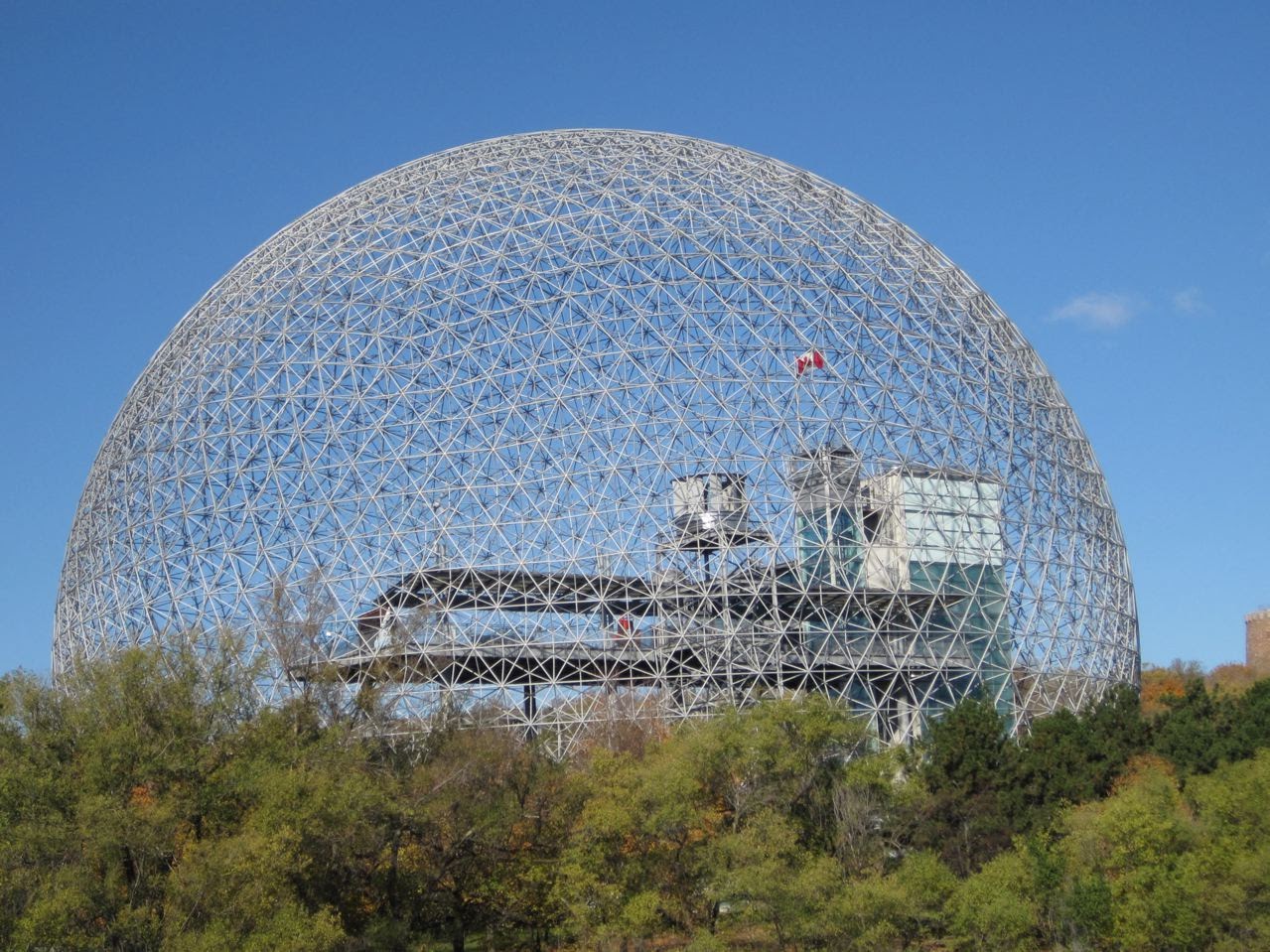MAGNIFICENT MONTREAL: FEEL THE PULSE
By Janet Steinberg
Montreal, in the Canadian Province of Quebec, is claimed to be the second largest French-speaking city in the world. Anglophile meets Francophile and the past meets the future in this vibrant city where stop signs command “arret”, a horse-drawn calèche clip- clops along 300-year old cobblestone streets, and jets whisper into the international airport.
Montreal, at the confluence of the Saint Lawrence and Ottawa Rivers, derived its name from Mount Royal, the imposing hill at the heart of the city. In English we call it “Mount Royal”, but in French they say “Montréal”. Legend has it that when the French explorer Cartier spotted the 763-foot mountain jutting up from the city, he exclaimed, “C’est un mont real”. (It is a royal mountain.)
Having just arrived in Montreal, I immediately taxied to the Iberville Pier where I boarded the Crystal Symphony awaiting me in the harbor. From my verandah, the first sight I saw was a stretch of Rubik’s Cube-like buildings stretching along the St. Lawrence River’s urban waterfront.
 |
| Crystal Symphony |
On further investigation, I learned that these stacked modular units were the work of renowned Haifa-born architect Moshe Safdie for 1967 World Fair Expo ’67. Safdie, now a citizen of Canada, Israel, and the United States, is known for his dramatically curved designs, geometric patterns, and use of windows and open spaces.
Named Habitat ’67, this housing development was designed as a prototype for future living in crowded cities around the world. The project interlocked concrete modules intended to offer affordable housing that would offer close, but private, living quarters. My guide Nadia told me that none of the unit’s windows allows its occupants to look into the window of another unit.
 |
| Habitat ’67 |
Another remaining structure from Expo ’67 is the Montreal Biosphere, the former United State’s Pavilion during Expo ‘67. Located in Parc Jean-Drapeau, on the Île Sainte Hélène, the Biosphere is now home to the Biosphère of Environment Canada, a museum dedicated to water and the environment.
 |
| Biosphere
|
Bagels and smoked meat are Montreal staples. Fairmount Bagel, established in 1919, was the first bagel bakery in Montreal. Today, the grandchildren of its founder continue the same traditions and methods that their grandfather brought from the old country. Fairmount’s bagels are still rolled by hand, and baked in old-fashioned,
wood-burning ovens. Fairmount offers more than 20 varieties of bagels. Most unusual is the Bozo that has three bagels twisted into one giant bagel. This delicious taste of history has sesame seeds on one side and poppy seeds on the other. Perfect for sharing.
Schwartz’s Delicatessen is world famous for it’s original smoked meat. With over 80 years of tradition, this Montreal classic is the oldest deli in Canada. This no-frills Montreal landmark, situated on the historic “Main” (Saint-Laurent Boulevard) packs in the people from 8 AM to the wee hours of the following morning seven days a week.
Founded in 1928, the restaurant has been in the same St. Laurent location ever since. Tucked in around funky storefronts and trendy boutiques, the restaurant is a single white-tiled room containing several rows of long narrow tables.Schwartz’s prepares its smoked meat the old-fashioned way. Containing no preservatives, the meat is marinated for 10 days using a secret blend of fine herbs and spices. The meat is smoked daily.
The award winning taste and freshness of Schwartz’s Smoked Meat has brought celebrities from all around the world to their tables. At Schwartz’s, you might find yourself seated next to customers such as Celine Dion, Halle Berry, or Angelina Jolie. But in order to get that seat, be prepared to stand in a long line that forms along the street day or night, rain or shine.
 |
| Schwartz’s Delicatessen |
Vieux Montreal (Old Montreal) is also a step back in time….way back in time. Centuries-old cobblestone streets are lined with quaint cafes, boutique hotels, art galleries, and shops.
The crowning jewel of Old Montreal is Notre Dame de Montreal, the most magnificent of French Canadian churches. Exterior construction began in 1823 and was completed in 1829. It was decades longer before the interior (that seats a total of 5500 people) was completed. The magnificent architecture and skilled workmanship exhibited in Notre Dame can be appreciated by people of all faiths.
 |
| Notre Dame de Montreal
|
A good way to gain an overall picture of old Montreal is by taking a calèche ride aboard one of Montreal’s romantic horse-drawn carriages. Calèches (that can accommodate from 3 to 5 people) depart from Notre Dame Street, near Place Jacques-Cartier; De la Commune Street, near Place Jacques-Cartier; and Place D’Youville, near the Pointe-à-Callière Museum.
Even if gambling is not your thing, you might want to visit the Casino de Montreal. This dazzling structure, the largest casino in Canada, is on an unique island setting on the Île Notre-Dame in Montreal. Two of the three buildings of the complex were the former French Pavilion and the Québec Pavilion that were built for Expo 67. The third building is an annex built by the casino. With more than 3200 slot machines and over 120 gaming tables this non-smoking casino is somewhat unconventional with its windows and low ceilings.
 |
| Montreal Casino
|
Montreal is often referred to as the Underground City”. Underground passageways beneath the downtown area provide access to hotels, shops, entertainment venues, and transportation systems. Christ Church Cathedral was raised on piles to make way for laying the foundation for this “Underground City”.
Montreal’s bustling downtown is a study in contrasts. Victorian brownstones stand in the shadow of soaring skyscrapers. Contemporary architectural gems nuzzle up to Neo-Gothic churches. Auto license plates shout “Je me souviens”. (I will remember).
I, too, will remember my time spent in Montreal. And, if you go, you will never forget yours.
